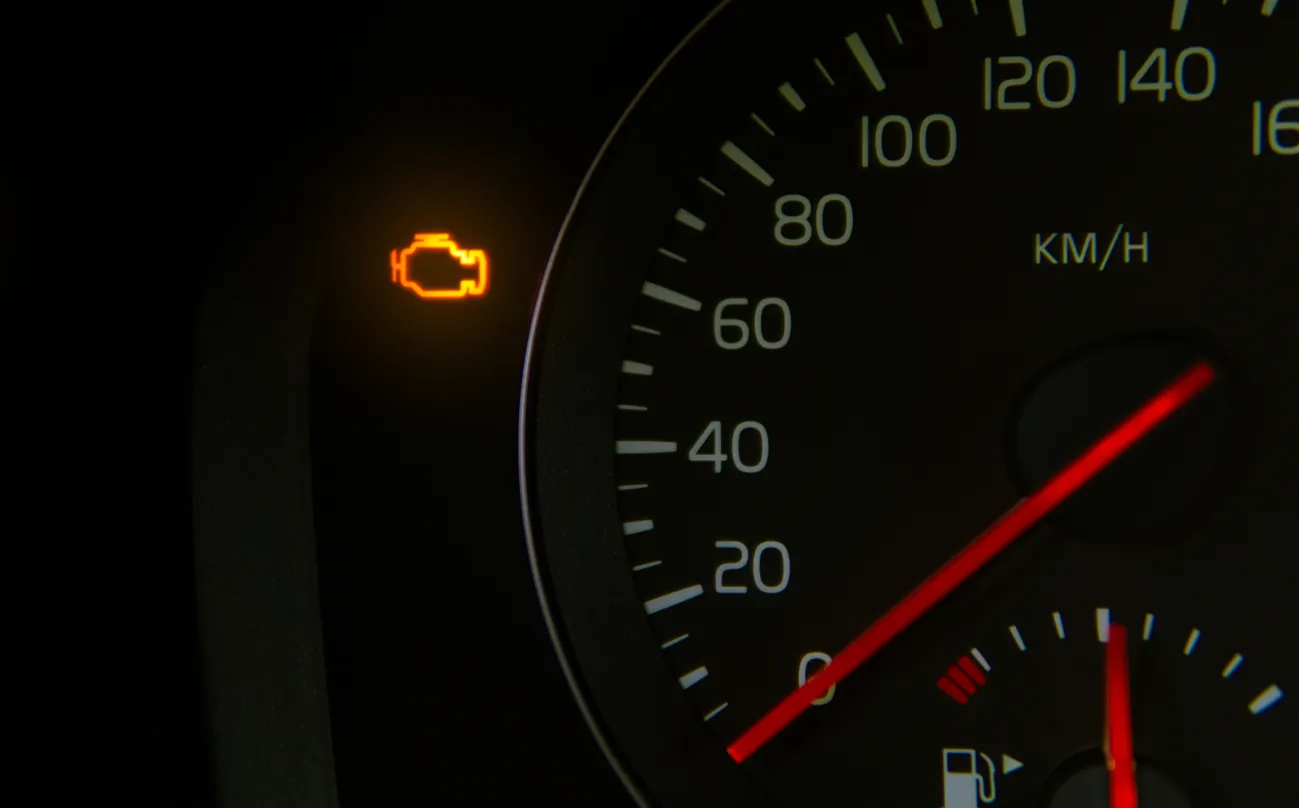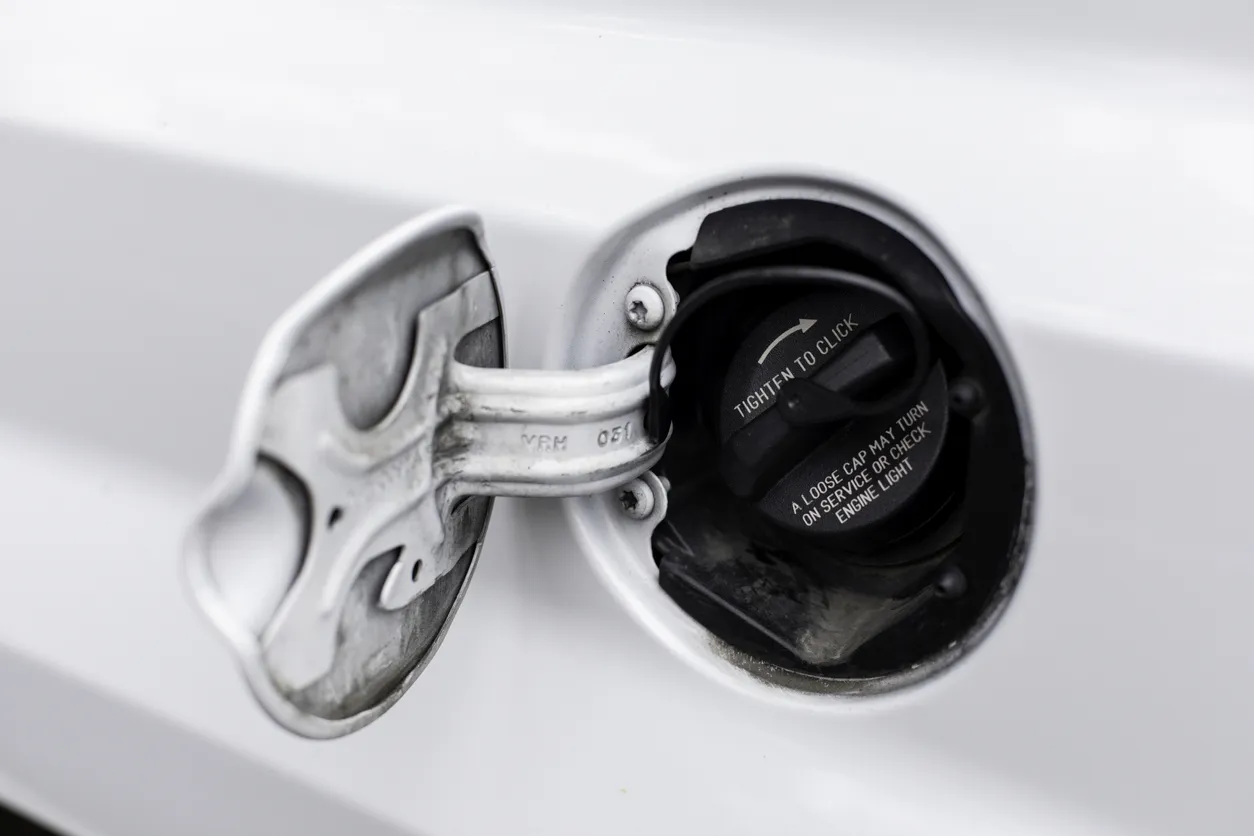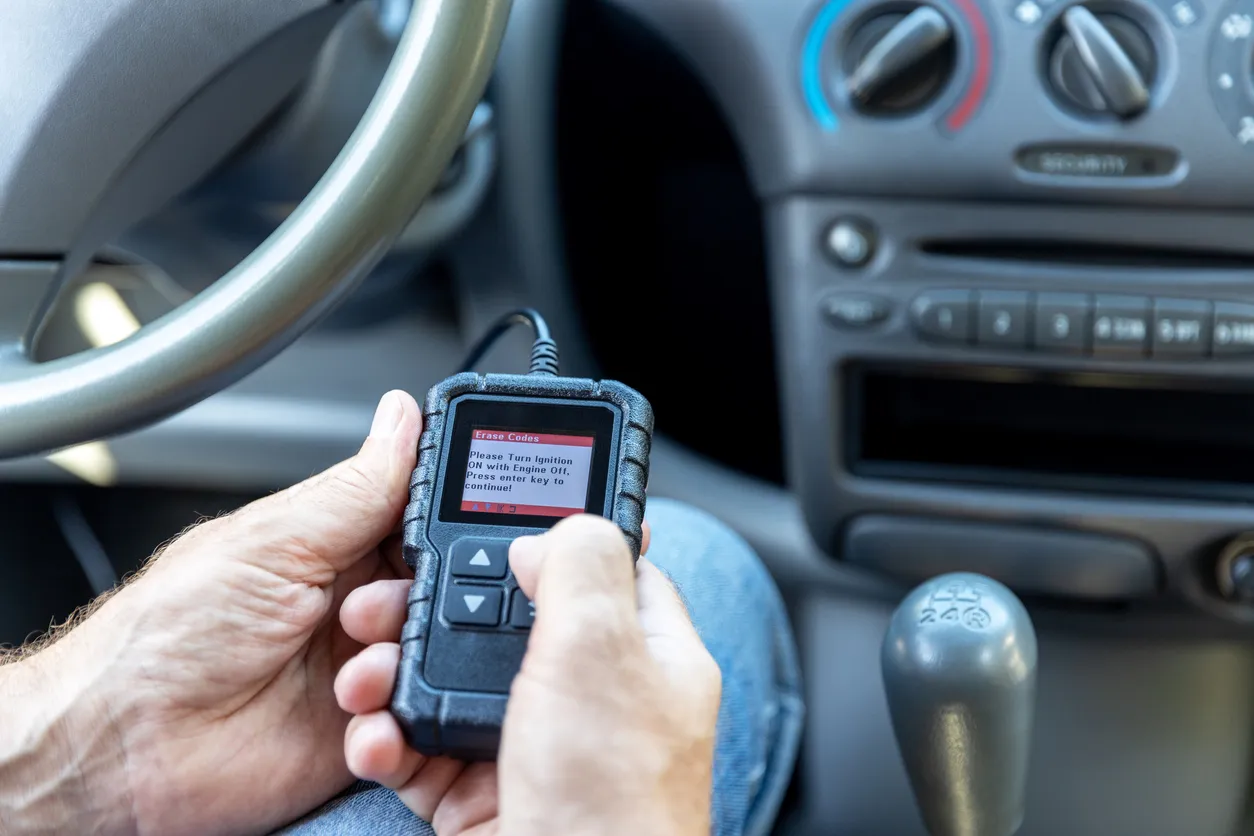Check Engine Light: What Does it Mean and Why Is it On?

As a vehicle owner, one of the last lights you ever want to see illuminated is the check engine light. This little yellow-orange light is a sign that you have an issue with your vehicle's engine you need to address. The check engine light isn't a clear sign that your vehicle is damaged or even that you have a serious issue to address. It is a sign that you have some sort of issue, though, and you should start attempting to determine why the light is on.
What Does Check Engine Light Mean
The short answer explaining the check engine light meaning is that something is wrong with the engine. Unfortunately, your vehicle looks at sensors related to its fuel, ignition, and emissions systems to trigger the check engine light. If there is an issue in any of those situations, your check engine light may turn on and give you a warning to start worrying about. This is why the light is so common and why it's difficult to determine what the issue is immediately after seeing it.
Why is My Check Engine Light On
Your check engine light is on because your vehicle has an issue with one of the systems related to the engine or the engine itself. A solid light is a less serious issue than a blinking light in most instances, but either way, you have an engine-related issue to deal with. If you notice the light illuminated when you turn your vehicle on, and the light doesn't go away, you need to take action to protect yourself.

You could have a problem as basic as a loose gas cap; try tightening your gas cap first before you do anything else. It might need to be replaced as well but don't make any changes without having the code read.
Possible Reasons the Check Engine Light is On
- You have a faulty spark plug somewhere
- Your mass airflow sensor is damaged
- An oxygen sensor is malfunctioning
- The catalytic converter isn't functioning
- You have a loose or malfunctioning gas cap
- Your vehicle has a bad tank of gas
- You have an internal engine problem
As you can see from the list above, some of the possible problems that lead to a check engine light are minor and easy to fix, while others are very serious. This is why it's important to be able to interpret the light as accurately as possible.
What To Do When Check Engine Light Comes On
When the check engine light comes on and doesn't go off, your first instinct is probably to start trying to troubleshoot your vehicle for problems. You can do simple checks, like looking for a gas cap that isn't installed properly, but chances are good. You won't be able to determine the issue with a quick check around your vehicle.

Instead, you should take a trip to the local auto parts store and get an associate to look up the warning code using a code reader. Look up the warning code and find out more specifics about why the check engine light is on. You can learn things like you have a failing sensor, your vehicle emissions system has a problem, your fuel system isn't functioning properly, and more. The code will point you in the right direction so you know a range of problems your vehicle may be having.
Look up the warning code and possible fixes for the issue. If the fixes are simple, such as replacing an old gas cap, you should try to do them yourself. Many times the issues are difficult to troubleshoot, or there is more than one possible cause for the light indicated by the code. When you have a problem that you either don't understand how to address or that you aren't sure about, you should bring your vehicle to a mechanic to look over as soon as possible.
Only a trained mechanic will know how to read all the different check engine codes and make sense of what the warning issue is and how to fix it. When you work with this type of professional, you'll have answers quickly, and you can often get the repairs you need reliably.
Watch For A Flashing Check Engine Light
While a steady check engine light often points to a minor problem that requires addressing, when the light is flashing, you probably have a more serious issue. A flashing check engine light often occurs because your engine is misfiring or you have another problem that requires the help of a trained professional. If you see a flashing check engine light, you should get your vehicle to a garage as soon as possible to avoid serious damage.
Since it's so difficult to determine the exact check engine light meaning without having a code reader handy, you should either have a reader or know where to go to have a reading performed when you need one. When you at least know how to read the error codes on your vehicle, you have a place to start when evaluating the check engine light. This is the only way for you to make sure your vehicle is safe to drive if it has an engine light on, and if the issue does present itself to you, make sure you're working with trained mechanics to help you resolve your problem.
Know the Dangers of Check Engine Light Problems When Looking for New Vehicles
While shopping for a new vehicle, you always want to avoid a vehicle with a check engine light on if you can help it. There are too many serious issues related to a check engine light, and it's best to get a vehicle that doesn't come with any of those problems. Along with looking for warning lights, you should look through a car history report about the vehicle to determine how it was treated and if it might have serious issues that you don't know about. A history report gives you a snapshot of how the car was cared for, and it is often enough to let you know whether a vehicle is a good buy or not. Always think about things like warning lights and a vehicle history report, and you can avoid many used vehicles with existing issues when you make your next purchase.
FREE Vehicle Search
- Accidents
- Problem Checks
- Title Records
- Recalls
- Values
- Specs
-
InfoPay, Inc. (dba GoodCar) is an Approved NMVTIS Data Provider
-
-

















































